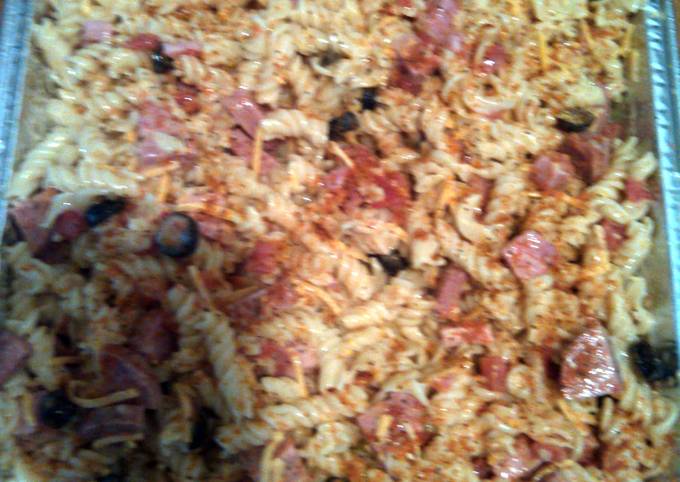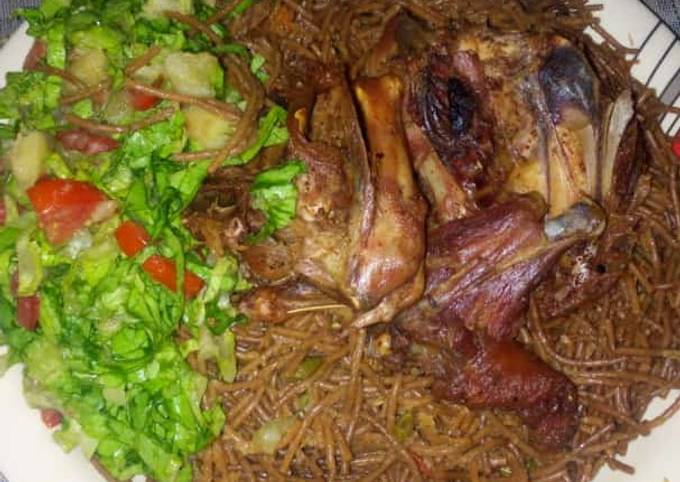
Hey everyone, hope you are having an incredible day today. Today, I will show you a way to make a special dish, kokoretsi. It is one of my favorites food recipes. For mine, I am going to make it a little bit tasty. This is gonna smell and look delicious.
Kokoretsi is one of the most well liked of recent trending foods on earth. It’s appreciated by millions every day. It is easy, it’s quick, it tastes yummy. They are fine and they look fantastic. Kokoretsi is something that I have loved my entire life.
We are washing really well all the meat and intestines that we are going to use for the inside part of kokoretsi while in the same time we cut the pieces in small-medium size pieces. More or less the size of an egg. Washing the intestines is the most difficult and tiring part of the process. According to Greek linguist and philologist Georgios Babiniotis, the Greek name kokoretsi comes from Albanian kukurec.
To get started with this recipe, we have to prepare a few components. You can have kokoretsi using 9 ingredients and 4 steps. Here is how you can achieve that.
The ingredients needed to make Kokoretsi:
- Take 2 lamb offals (without the kidneys)
- Get extra sweetbreads
- Make ready 2 lamb caul fats
- Make ready 2 kg lamb intestines
- Get the juice of 2 lemons
- Get oregano
- Prepare salt
- Prepare pepper
- Get 1 little finely chopped garlic (optionally)
It used to be a Greek Easter dish but now you can find it almost in every Greek Taverna or grill-house the whole year. Thread the pieces of lamb pluck on the skewers in the alternating in the following order : lungs, heart, liver, sweetbreads. Cut off a piece of lace fat large enough to cover the whole skewer and wrap nicely over the meat. Wrap the intestines around the meat to cover and tighten at the edge of the skewer.
Steps to make Kokoretsi:
- Wash the intestines thoroughly. It is easier to wash them if you fit one end of the intestines on the tap, fill it with water and draw it down through the rest of the intestine with your fingers. Place them in a bowl with the lemon juice to whiten and firm them making sure that you pull the ends apart.
- Cut the offal to pieces that are the size of walnuts and let them strain. Season with pepper, sprinkle with oregano and the garlic and start adding them on a spit, alternately. Season with salt last, when you pass the pieces on the spit so that they are not slippery. One piece of liver, one lung, spleen, sweetbreads and then start over. When you are done, squeeze them tight so that there is no space between them and wrap them with the caul fats. Then wrap them as tight as possible with the intestines.
- Set the kokoretsi aside on the spit, covered, to dry and get the flavor from the seasoning. If you roast it over embers place the spit close to the embers at first and turn relatively fast until it gets golden brown. Then place it higher and turn leaving it for a while at its four settings. It has to be well cooked but not dripping.
- If you don't roast it over embers you can remove the spit very carefully and place the kokoretsi on a baking tray so that you cook it in the oven. Don't add any water because it lets out a lot of liquids. Brush with oil on both ways of cooking.
Cut off a piece of lace fat large enough to cover the whole skewer and wrap nicely over the meat. Wrap the intestines around the meat to cover and tighten at the edge of the skewer. Kokoretsi (κοκορέτσι, Kukuretsu, Kokorec, Kokoreç) Kokoretsi is a traditional Greek dish consisting of lamb or goat offal that is chopped into tiny pieces, seasoned with lemon juice, olive oil, salt, and pepper. The offal is then skewered, covered with caul fat to keep the pieces in place, and cooked over charcoal. Spread the love Another usual suspect that's present at the Greek Easter table is Kokoretsi.
So that is going to wrap it up for this special food kokoretsi recipe. Thanks so much for reading. I’m sure that you can make this at home. There’s gonna be more interesting food in home recipes coming up. Remember to bookmark this page in your browser, and share it to your loved ones, colleague and friends. Thank you for reading. Go on get cooking!

